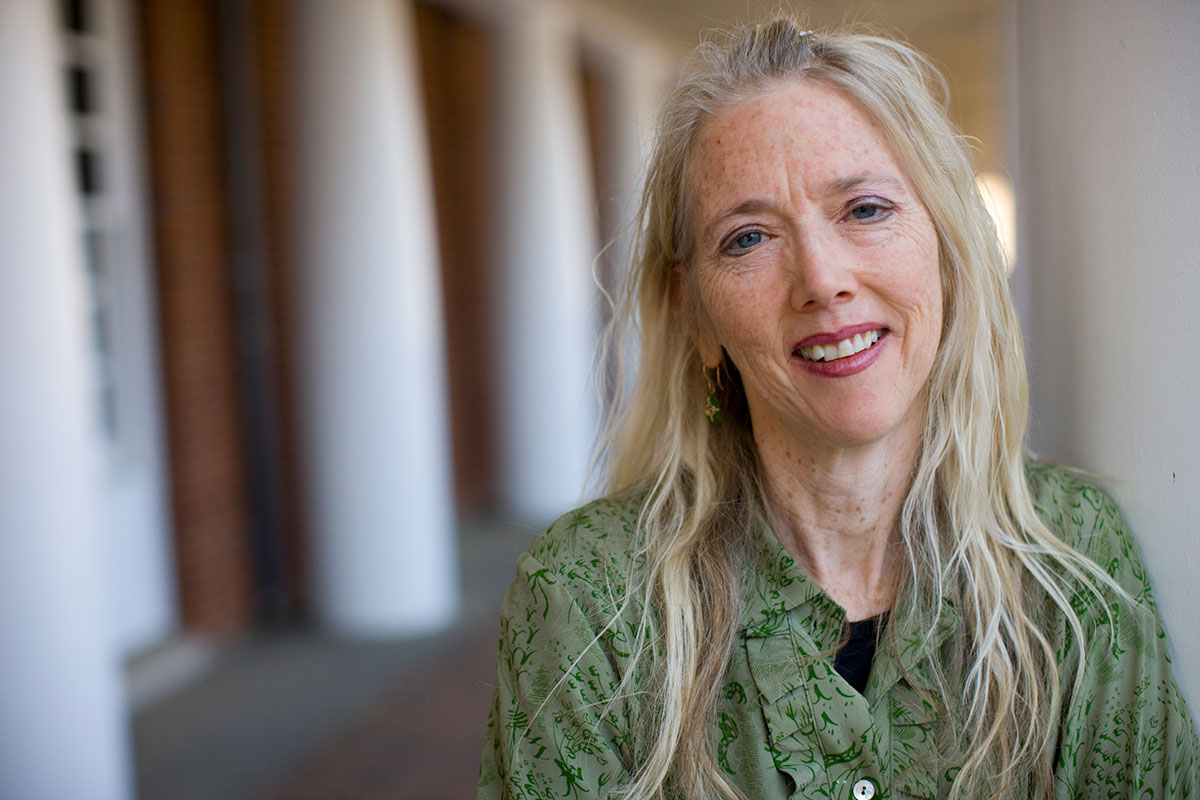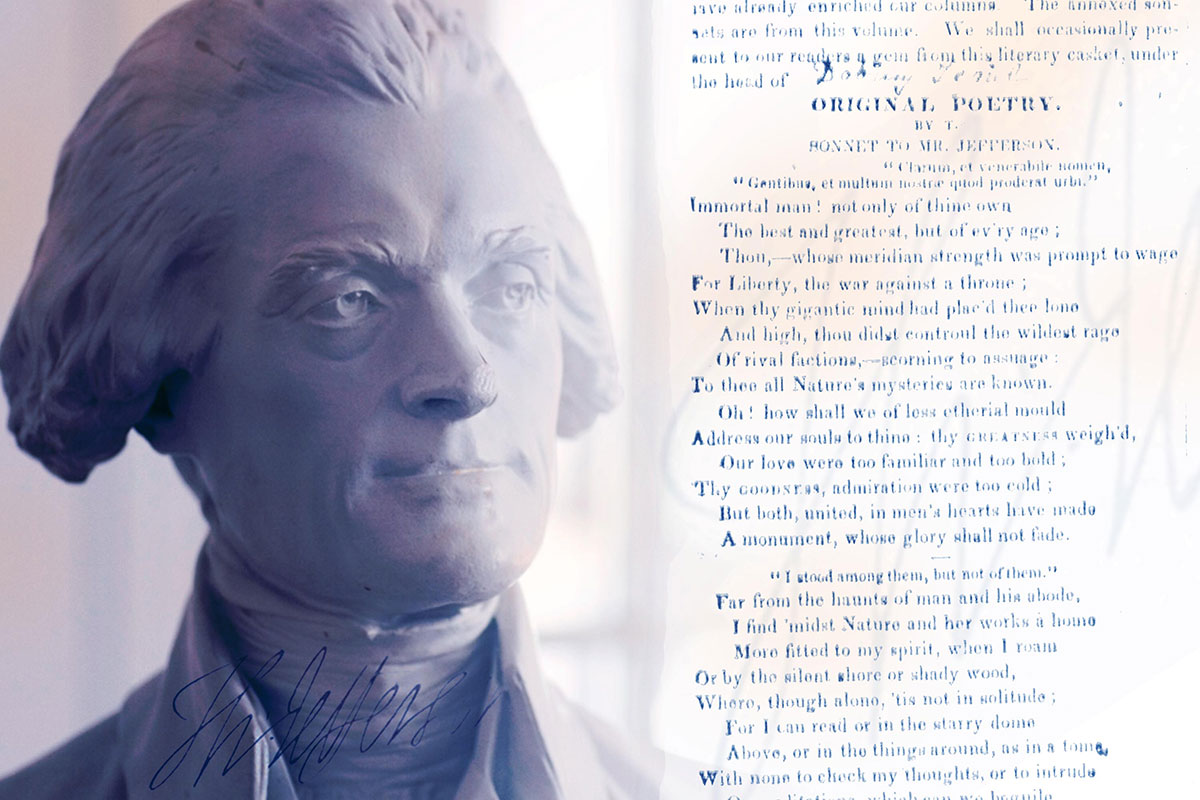“Jefferson’s last physical gestures, on his deathbed, were of writing in the air,” University of Virginia English professor Lisa Russ Spaar writes in her new anthology, “Monticello in Mind: Fifty Contemporary Poems on Jefferson.”
Thomas Jefferson, renowned as one of America’s best writers, the author of the Declaration of Independence and founder of the University, has been examined from seemingly every angle: by historians, political scientists, and scholars and commentators of all stripes. Now Spaar has added the lens of poetry, another love of Jefferson’s.
She solicited poems from a varied group of current American writers (including Claudia Emerson, a UVA alumna and Pulitzer Prize-winner, who died in December 2014) with no guidelines except that the poem should be inspired by something about Jefferson.
The topics and types of verse in the anthology span many areas associated with Jefferson – politics, nation, race, religion, love and nature, to give a short list.
“It was fascinating to me how, as diverse as the poems are, they speak to one another,” Spaar wrote in a recent email, “and, taken together, give a strong sense of the ways in which Jefferson’s paradoxes as a person, a political figure [and] a writer abide in America – issues of race, privilege, governmental control (the limits of national/state governance vs. personal rights), gender and the power of language itself to inspire and to obscure.”

Lisa Russ Spaar’s anthology of poetry about Thomas Jefferson and Monticello inspired Sunday’s Virginia Festival of the Book event. (Photo by Dan Addison)
In her introduction, Spaar discusses how poetry was a constant part of Jefferson’s life. Just as he cut out parts of the Gospels to construct his own Bible, he collected poems into a scrapbook and made similar scrapbooks for his granddaughters. He also included poems in letters to family and friends.
Spaar relays several poignant stories about poetry’s place in his life, such as the scene when his beloved wife Martha was near death: the two of them copied parts of Laurence Sterne’s novel, “The Life and Opinions of Tristam Shandy,” putting the words in verse.
Only one poem certain to be from his own pen seems to have survived, and that came close to his death, when he wrote, “Then farewell my dear, my lov’d daughter, Adieu!/The last pang in life is in parting from you./Two Seraphs await me, long shrouded in death;/I will bear them your love on my last parting breath.”
Lisa Russ Spaar and contributing poets Jennifer Chang, Stephen Cushman, Rita Dove, Paul Guest, Thorpe Moeckel, Elizabeth Seydel Morgan, Debra Nystrom, Ron Smith, David Wojahn and Charles Wright will read their poems from “Monticello in Mind” on Sunday at 3 p.m. in the Monticello Visitors Center as part of the Virginia Festival of the Book.
Spaar, having earned her B.A. and M.F.A. from UVA, returned about 20 years ago after a couple of other teaching stints. She said she’s been “contending with Jefferson as myth and man for a long, long time” and has visited Monticello many times.
On one such trip, Spaar took along a visiting poet, Carol Muske-Dukes, to whom she devotes the anthology. The day happened to be April 13, the founder’s birthday.
“As we stood in that place and gazed out of its round windows at the pastel beds of tulips, the emerald lap of lawn, at Mulberry Row where the plantation’s enslaved people lived, and further out over the Blue Ridge Mountains, we talked about Jefferson’s paradoxes, his insatiable curiosity, his blind spots, his prescience, his secrets,” she wrote about the book’s conception.
“One privilege of my long connection with the University of Virginia Creative Writing program has been the opportunity to meet and know so many contemporary poets, and as this book began to take shape, I very deliberately invited poets I thought would do something interesting, fresh and compelling with the subject at hand,” Spaar explained.
“I also knew that I wanted the book to be written by ‘American’ poets, including native Americans, African-Americans, Asian-Americans, as well as young poets and older ones. The result is not only a prismatic look at a complicated figure, but also, I think, a collection of really fine poems.”
Media Contact
Article Information
March 17, 2016
/content/viewing-thomas-jefferson-through-poetrys-lens

